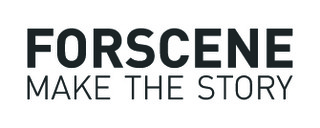Born and raised in LA, Kristal Paramor lives and works in London for networks such as Discovery and Animal Planet as a coordinator sometimes on several different productions simultaneously, guiding teams of 30-50 employees, consisting of editors, assistant editors, and graphic artists. It’s no surprise, then, that she labels one of her favourite things as the Discovery Channel, alongside indie pop music, and pizza.
Every person in every position of the production industry has their own way of going about getting things done. We have taken knowledge from our own experience, advice from our mentors, and of course, learned from moments of trial & error. As a veteran post production coordinator, I’ve come up with a few pieces of advice that might benefit those hoping to enter the editorial administrative world.
1: Going With the [Work]Flow
This is always my number one. Depending on whether your project is in its first or 21st season, different things are required to make sure an edit runs as smooth as possible.
A good practice to manage your responsibilities as post production coordinator is to establish a weekly workflow. This will help you keep track of what you need to do on a daily basis, who needs to be emailed about what on specific days, when to complete and submit deliverables, etc. A posted printout list at your work space does the job nicely.
2: Take Care of your Edit Support
It’s important not to stretch them too thin with requests. I have found that my most common request is an EDL, or Edit Decision List, which is probably the one thing any edit assistant will tell you they hate doing. Typically I need updated EDLs a few times a week in order to complete paperwork, so I make sure to give them a heads up as to when I will need them. So do them and yourself a favour…by knowing when to ask for favours.
3: Respect Deadlines with the “+1 Rule”
If you want to be on top of your post coordinating game, then you NEED to be hyper aware of deadlines. Any channel or network you are producing for will establish delivery dates far enough in advance that you should be able to schedule master deliveries at least one day early. This lowers the possibility of things going awry, whether it be the online needing more time or a FedEx faux pas.
4: Don’t Leave Home Without Forscene
Whether you have command of a logging team or a group of researchers, it is important to equip them (and yourself) with the right tools, and one tool I have found to be the most effective is Forscene. Forscene seamlessly syncs with Avid, which allows your producers independence and freedom to create their stories without interrupting their flow to ask for transcripts or updates on ingest. It’s all there and ready for you in a user-friendly format.
5: The N-Word (Network...!)

Network! Network! Network! It’s all about networking. At the end of the day, you can be an incredible post production coordinator, but if you don’t network, no one will know about this amazing set of skills you have spent your adult life cultivating. Branch out and talk to teams working on other shows and projects. It might seem difficult to put yourself out there, but it will be so worth it in the end.
 We're doing a series of blogs in collaboration with Forscene. You can read more about Production, Post-Production and industry technology over on the Forscene Blog.
We're doing a series of blogs in collaboration with Forscene. You can read more about Production, Post-Production and industry technology over on the Forscene Blog.

